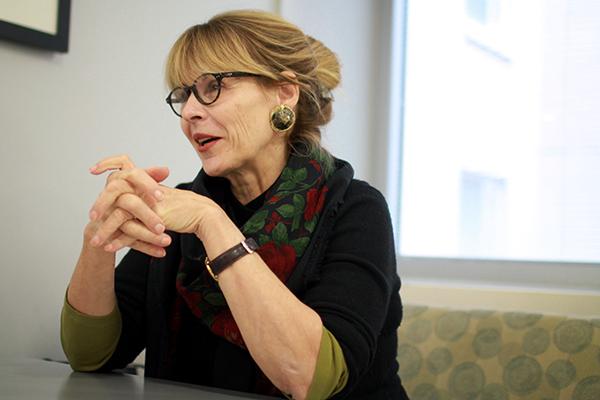Updated: Nov. 15, 2014 at 5:58 p.m.
The father of Pakistani activist Malala Yousafzai will speak at GW on Thursday to promote a GW-made curriculum inspired by his activist daughter’s book.
Ziauddin Yousafzai will appear on a panel that will kick off the release of a curriculum centered on the 17-year-old, who survived a Taliban assassination attempt. Professors in the Global Women’s Institute have spent the last year making the guide, which will focus on topics like memoirs, media and gender-based violence – all inspired by Malala Yousafzai.
Michele Clark, a lecturer in the Elliott School of International Affairs, said the curriculum will help make the impact of Malala Yousafzai’s activism more clear, and show that girls’ access to education is a basic right. Malala Yousafzai won a Nobel Peace Prize last month for her activism in children’s education.
“We can read about extremism, we can read about education as a human right especially for girls, we can understand in the abstract the problem of some girls getting an education, but we all learn better through story,” Clark said.
The collection of essays will be released at GW on Thursday, but the creators are reaching out to several universities that have also expressed interest in using it. Clark said she did not know the names of all the schools that had requested more information so far.
Mary Ellsberg, the director of the Global Women’s Institute, said students who have tested out the curriculum are already asking how they can get involved in more ways. She added that the curriculum could eventually reach schools around the world.
“We’re really looking forward to expanding the reach and working with other schools and universities, not just around D.C. and the United States, but with schools globally,” Ellsberg said.
Founding professors are working on a “companion guide” for high schools that would focus on basic concepts like extremism and the geography of Pakistan.
“We would like this to be used broadly,” said Clark, who co-authored a section of the guide about girls’ education. “The power of story is extremely important in providing a niche, a home, a context to some of these great ideas.”
The curriculum is divided into eight themes with individual activities, group project ideas and information about other resources like videos or journal articles. Clark said the curriculum will be posted online so other professors could use sections in their classes.
Clark said faculty are also considering creating an interactive video component to add in the future.
By tying foreign policy issues to the autobiography, students will be able to relate to the information in a more realistic way, Clark said.
“They could see the consequences of extremism play themselves out not just in negotiating rooms and on battlefields but in homes and in private lives,” Clark said.
Julie Donovan, an assistant English professor in the Women’s Studies department, helped create the guide and has tested sections in her classes this year. She said it has encouraged her students to realize the impact of their own choices.
“They can look at how a personal story can be conveyed against the backdrop of a bigger story, and see the public consequence of your private actions and your individual integrity,” Donovan said.
This post was updated to reflect the following correction and clarification:
The Hatchet incorrectly spelled Michele Clark’s first name. It is Michele, not Michelle. We regret this error. The post was also updated to reflect that Clark did not decline to name the schools that have expressed interest in the curriculum. Rather, she said she did not know the names of all the schools that had requested more information.







